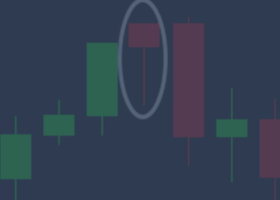
US futures gain after five days of losses, dollar advances to 10-year high, oil reaches five-year low
Today U.S. equity-index futures gained after five days of
losses, and the dollar touched a 10-year high before minutes from
December’s Federal Reserve policy meeting. Oil hit five-year lows in New York and London, while German bonds slid with Treasuries, as Bloomberg reports.
Standard & Poor’s 500 Index futures rose 0.2 percent by 7:16 a.m. in London, while contracts on the Euro Stoxx 50 Index advanced 0.5 percent. The S&P 500 dropped 0.9 percent yesterday to cap its longest losing streak in 13 months as small-cap and energy shares slid. The U.S. benchmark has almost tripled since a low in March 2009.
The MSCI Asia Pacific Index fluctuated after its biggest single-day loss in nine months. Crude fell 1.5 percent in New York and 1.6 percent London. Yields on 10-year Japanese and German notes followed the rate on U.S. Treasuries higher after hitting record lows.
Oil’s bear market has entered 2015, spurring concern that marginal producers will struggle to pay debts and frustrating central bank efforts to stave off deflation. With the mean yield for benchmark securities issued by the U.S., Japan and Europe at a record low, the euro area will post its first drop in consumer prices since 2009 today, economists estimate. The Fed’s minutes may offer insight into the timing of the first interest-rate increase since 2006.
West Texas Intermediate crude was at $47.27 a barrel, its lowest price since April 21, 2009. WTI futures declined 10 percent in the first three trading days of this year, extending 2014’s 46 percent tumble, the steepest since 2008.
Oil stockpiles in the U.S., the world’s largest consumer of crude, probably rose by 700,000 barrels last week, according to a Bloomberg survey of energy analysts before a government report today. The highest U.S. oil output in 30 years is a key factor in the global glut in the commodity, along with OPEC’s reluctance to reduce production.
Brent crude slipped to as low as $50.22 a barrel in London, also a five-year low.
Europe’s
benchmark Stoxx Europe 600 Index has fallen the last three trading
days, closing at the lowest since Dec. 17 yesterday. The MSCI All
Country World Index traded at 403.53, heading for its lowest closing
level since Dec. 16. The Asia-Pacific gauge, which dropped 1.7 percent
yesterday, was at 134.9.
Japan’s Topix index fell 0.1 percent, extending its losing streak to five days, while Australia’s S&P/ASX 200 Index retreated 0.2 percent. The Kospi index in Seoul increased 0.1 percent.
Hong Kong’s Hang Seng Index gained 0.6 percent as Tencent Holdings Ltd., China’s biggest Internet company surged 3.4 percent amid analyst upgrades. The Shanghai Composite Index swung between gains and losses before closing at the highest since August 2009.
Japanese government notes due
in a decade paid as little as 0.265 percent, a record low, before
dropping today. German 10-year bond yields rose 2 basis points to 0.46
percent after finishing yesterday at the lowest ever. Earlier today
10-year Australian bond yields fell to as low as 2.61 percent, the
lowest in data going back to 1969.
Ten-year Treasuries fell, with the yield rising two basis points to 1.96 percent after falling below 2 percent yesterday for the first time since October. The average yield among Group of Three benchmark securities dropped to 0.89 percent, the least ever based on Bloomberg data going back to 1989.
“With the sudden slide in oil prices,
inflation expectations have receded and global stocks have declined,
curtailing demand for risk,” said Satoshi Yamada, chief quantitative analyst at SMBC Nikko Securities Inc. in Tokyo.
“That’s prompting investors to rush to bonds.”
The greenback gained ground against major and emerging-market peers. The Dollar Spot Index climbed to 1,144.9, heading toward the highest close since the gauge tracking the U.S. currency against 10 major counterparts was started in late 2004. Indonesia’s rupiah weakened 0.6 percent and Malaysia’s ringgit slid 0.5 percent.
European Central Bank President Mario Draghi sparked the euro’s slump last week, saying in an interview that he couldn’t rule out the possibility of deflation in the region. The comments stoked speculation that the ECB will embark on full-scale quantitative easing. Investors are also weighing the possibility of Greece exiting the euro area if parties opposed to spending cuts prevail in this month’s snap election.
Consumer prices in the 18-nation euro region probably fell 0.1 percent in December, according to economists surveyed by Bloomberg before today’s data, after rising 0.3 percent in November.
The yen dropped 0.5 percent to 118.95 per dollar after strengthening 1 percent yesterday. The euro slid to $1.1843 earlier today, its weakest level since February 2006, before trading at $1.1880. The currency gained 0.4 percent to 141.32 against the yen after earlier reaching a two-month low.


